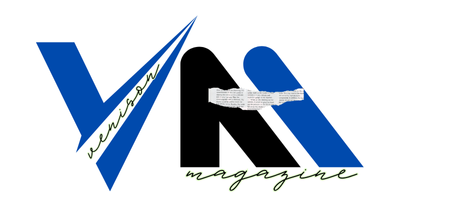Introduction
The phrase “GameStop February October Irwin decrypt” represents a pivotal chapter in modern finance, technology, and culture. From the meteoric rise of the GameStop short squeeze in January 2021 to its ripple effects in February and even later in October, this saga demonstrates how the financial world has been disrupted by retail investors and innovative technology.
GameStop’s story has transitioned from being a struggling brick-and-mortar retailer to a major player reshaping investment conversations and flirting with blockchain technology. The events of 2021 sparked discussions that are still ongoing about the power of retail investors, decentralized finance, and the future of traditional investing structures. But what does this all mean for finance enthusiasts, retail traders, and tech innovators? This blog dives into the timelines, consequences, and ongoing significance of GameStop’s evolution, as well as the potential that the term “Irwin decrypt” holds in the future of finance.
GameStop’s Timeline: From Retailer to Financial Frontrunner
A Brief History of GameStop
Founded in 1984, GameStop started as a retail chain selling video games, consoles, and other gaming products. For decades, it enjoyed moderate success in the gaming market. However, as consumer habits began shifting towards digital downloads and online marketplaces, GameStop struggled to adapt, facing declining sales and mounting skepticism about its future. By early 2021, it was seen by many as an outdated, struggling company with little hope for revival.
The January 2021 Short Squeeze
The pivotal turning point came in January 2021, when GameStop became the center of one of the most extraordinary financial events of recent memory. Institutional investors placed heavy short positions on GameStop shares, betting on further declines in the company’s stock value. Retail investors, particularly those active on online forums like Reddit’s r/WallStreetBets, saw an opportunity to challenge Wall Street.
Through collective action, they drove GameStop’s stock price to unprecedented heights, triggering a “short squeeze.” Hedge funds that had heavily shorted GameStop were forced to cover their positions at massive losses, cementing the event as a cultural and financial phenomenon.
Key Players in the Saga
- Retail Investors: Often first-time traders, these individuals leveraged platforms like Robinhood to make their voices—and wallets—heard.
- Hedge Funds: Prominent institutional investors, including Melvin Capital, faced billions in losses due to the short squeeze.
- Digital Platforms: Stock trading apps such as Robinhood were central to retail traders’ ability to participate, but they drew controversy when trading restrictions were imposed mid-squeeze.
The Impact and Aftermath: February and Beyond
The Ripple Effects on Individual Investors
For retail investors, the GameStop fiasco was about more than just money. It was seen as a symbolic battle of David versus Goliath—individuals versus institutions. While some retail traders reaped significant profits, others learned hard lessons about volatility and risk when GameStop’s stock price eventually cooled.
Fallout for Institutional Entities
The loss of billions in hedge funds highlighted vulnerabilities in the financial system, showcasing how the collective power of retail investors could impact even the most sophisticated institutional players. This event forced hedge funds to reevaluate their short-selling strategies and ushered in conversations around market fairness and regulation.
GameStop’s Strategic Evolution in Finance and Technology
Responding to its newfound prominence, GameStop pivoted its strategy, exploring blockchain technologies and digital assets. By October 2021, the company had announced partnerships aimed at incorporating NFTs, signaling a significant evolution from its roots in physical retail. This exploration into blockchain positioned GameStop as a player in the growing trend of decentralized finance.
The Rise of Retail Investors and Decentralized Finance
Empowerment of Retail Investors
GameStop’s story underscores the growing influence of retail investors in reshaping traditional market dynamics. Historically, Wall Street and institutional investors dictated the direction of financial markets. However, retail traders have now demonstrated their ability to move markets collectively, challenging institutional dominance.
Decentralized Finance’s Growing Influence
At the heart of this disruption lies decentralized finance (DeFi), which offers financial services without relying on traditional intermediaries like banks or brokers. GameStop’s pivot to blockchain technology aligns with this movement, reflecting a broader trend where DeFi tools grant individuals more control over their financial lives.
Key Takeaways
- Retail investing platforms, including Robinhood and Webull, have democratized trading, enabling mass participation.
- The principles of DeFi—transparency, accessibility, and autonomy—are gaining traction as more individuals seek alternative investment options.
- GameStop’s leadership in exploring NFTs and blockchain marketplaces aligns with the ideals of a decentralized and technologically advanced financial future.
GameStop’s Future and the Significance of “Irwin Decrypt”
What Lies Ahead for GameStop?
GameStop is no longer just a video game retailer; it is transforming into a tech-focused company exploring novel revenue streams. With blockchain initiatives, NFT marketplaces, and a reinvigorated brand image, the company is positioning itself as an innovator in the intersection of gaming, commerce, and finance.
Decoding “Irwin Decrypt”
The term “Irwin decrypt” symbolizes the unraveling of complex systems within finance and technology. By reflecting on GameStop’s story, “Irwin decrypt” represents the ongoing evolution of understanding traditional finance structures, decentralization, and the power dynamics between institutional and individual investors.
Broader Implications
- Blockchain adoption by legacy companies like GameStop could significantly impact its valuation and market recognition.
- The phrase reinforces the importance of staying informed and adaptable in a rapidly changing financial and technological environment.
Empowering the Next Wave of Financial Evolution
GameStop’s journey from traditional retailer to financial disruptor reveals profound lessons about individual empowerment, technological advancements, and the collective power of retail investors. The movements seen in February and October 2021 showcase how the financial world has forever changed.
Looking ahead, the relevance of terms like “gamestop february octoberirwindecrypt” will likely increase as individuals and companies continue to challenge existing paradigms and drive innovation.
What’s your take on GameStop’s story? Share your opinions or follow its evolving narrative—it’s an exciting time to be part of this new financial revolution.
FAQs
What is the “GameStop February October Irwin decrypt” reference?
It highlights key moments in GameStop’s evolution, from its January short squeeze to trades and blockchain pivots, reflecting its impact on finance.
How did GameStop transform after the short squeeze?
GameStop leveraged its newfound prominence to reinvent itself, including exploring blockchain technology and NFTs as part of its growth strategy.
What role did retail investors play in the GameStop story?
Retail investors collectively drove GameStop’s stock price during the short squeeze, demonstrating their ability to challenge institutional norms.
Why is blockchain important to GameStop’s future?
Blockchain enables GameStop to explore NFTs and decentralized finance, aligning with modern trends and diversifying its revenue streams.
What can businesses learn from GameStop’s saga?
GameStop’s story shows the importance of adaptability, leveraging technology, and recognizing the influence of grassroots collective actions.











